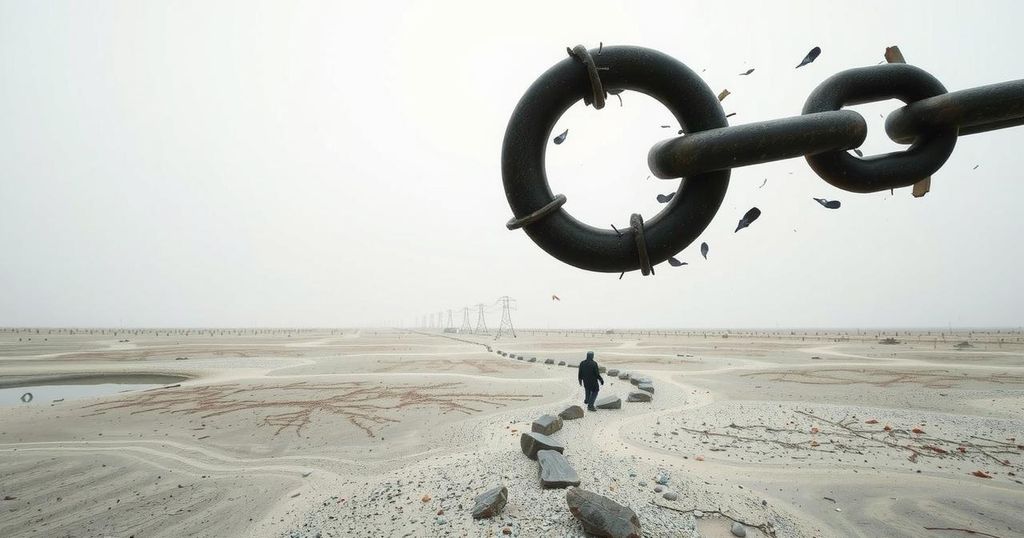President Donald Trump has urged Egypt and Jordan to accept Palestinians from Gaza, proposing relocations that may last temporarily or long-term. Alongside this, he announced the lifting of restrictions on military aid to Israel, including 2,000-pound bombs. Critics highlight the ethnic cleansing implications of his remarks and remind of historical traumas tied to Palestinian displacement.
President Donald Trump has proposed a controversial plan in which he suggests that Egypt and Jordan should take in Palestinian residents from Gaza as a form of relocation. He indicated that this movement could last temporarily or be more permanent. Alongside this, he expressed intentions to facilitate military support for Israel by lifting restrictions on weapons transfers, particularly the 2,000-pound bombs that had been previously withheld by the Biden administration due to humanitarian concerns.
Speaking to the press during a flight on Air Force One, Trump articulated his desire to ‘clean out’ Gaza, referencing discussions he held with King Abdullah II of Jordan and a planned conversation with Egyptian President Abdel Fattah el-Sisi. He emphasized the dire conditions in Gaza, remarking that it is currently a ‘demolition site’ following extensive destruction and loss of life throughout Israel’s military offensive.
Abdullah Al-Arian, a historian at Georgetown University, warned against the implications of Trump’s remarks, alleging that they reflect an alarming agenda towards ethnic cleansing that has historically met resistance from regional leaders. Al-Arian underscored that Palestinians would not welcome such proposals, recalling the historical traumas tied to their displacement.
In support of Trump’s viewpoint, far-right Israeli Finance Minister Bezalel Smotrich endorsed the idea of relocating Gaza’s residents, framing it as an opportunity for them to establish new lives. He expressed his intention to collaborate with Israeli leadership to devise an operational plan for this relocation.
Furthermore, any potential transfer of Palestinians evokes deep-seated fears of re-enacting the ‘Nakba,’ a term denoting the mass displacement associated with the formation of Israel in 1948. Egypt has signaled its refusal to accept forced displacements, citing the significance of maintaining its peace treaty with Israel.
Trump also announced the lifting of a ban on sending 2,000-pound bombs to Israel, stating that their transfer had been delayed by the previous administration due to concerns over civilian casualties. The history of U.S. military aid to Israel continues to be significant, highlighting the complex dynamics of support in the ongoing conflict.
The article addresses President Donald Trump’s recent comments regarding the potential relocation of Palestinian residents from Gaza to Egypt and Jordan. This proposal emerges amidst ongoing military conflict between Israel and Palestinians in Gaza, which has resulted in substantial destruction and loss of life in the region. The dialogue raises critical concerns about ethnic cleansing, historical displacement, and the geopolitical implications of relocation in the Middle East. Additionally, the article highlights the worries surrounding military aid to Israel and the humanitarian impact of such actions on civilians in Gaza.
In summary, President Trump’s proposal to relocate Gaza residents has sparked concerns regarding ethnic cleansing and the historical repercussions associated with displacing Palestinians. His comments and the endorsement from Israeli officials reveal a contentious debate over solutions to the ongoing humanitarian crisis. As international reactions unfold, the potential implications for regional stability and the peace process remain focal points of discussion.
Original Source: www.aljazeera.com






